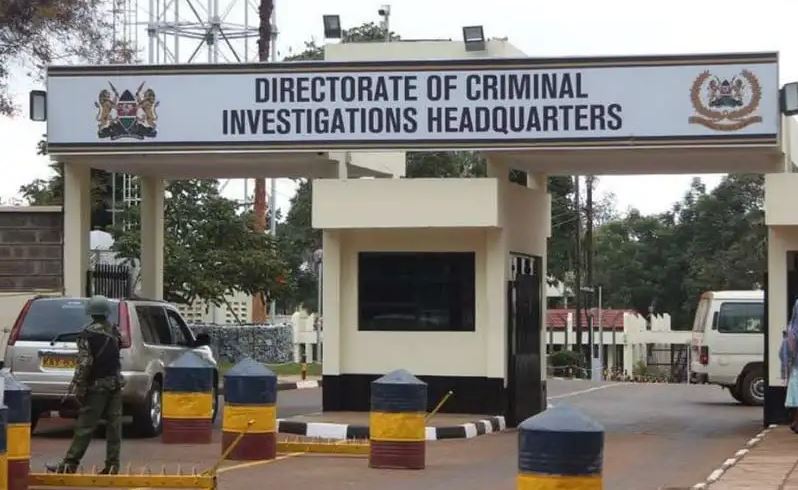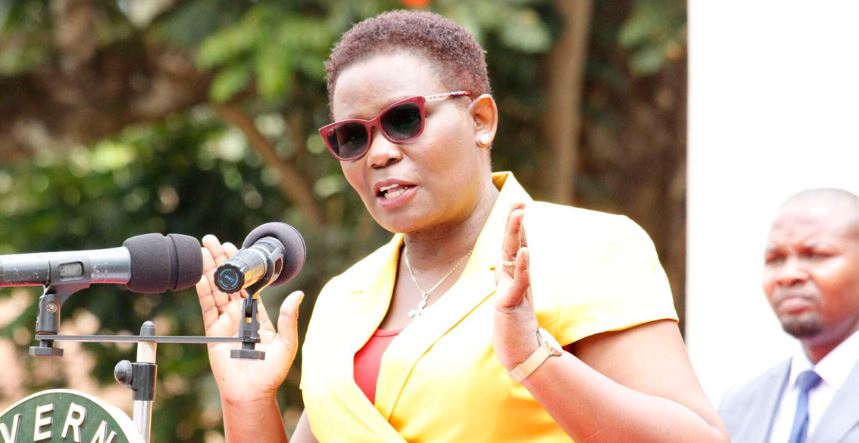
On 24th September 2022, the members of the disbanded special service unit were arraigned in court to answer to murder charges of the two Indians hired by the Kenya Kwanza coalition during the campaign period to aid in their presidential campaign.
The unit has been accused of numerous disappearances and suspected murders by the public, although none of them have been convicted of any wrong doing.
It is this same unit that the deputy president Gachagua accused of arresting him naked in front of his children in an attempt to intimidate and discourage him from supporting the current president before the August 2022 elections.
As they answered to these charges, a high profile Pakistani investigative journalist, who was filming a documentary on corruption, was allegedly murdered on Sunday night by police in Kajiado County in an alleged case of mistaken identity.
These and other cases of extra judicial killings have raised questions regarding the conduct and operation of our police service, and although the government has tried to link them to Kinoti, the former director of criminal investigations, there is only so many deaths he can take responsibility for.
Our police service has committed extra judicial killings and other major crimes for a very long time, with very few officers being held to account.
For example, in 2013, Mohamed Ali filmed an investigative documentary titled ‘Jaramandia la Uhalifu’ where Daniel Seronei, a former police officer decorated with taking down some of the most wanted criminals, including Wanugu and Rasta, accused his colleagues of attempting to kill him.
He described how his colleagues ambushed and shot him nearly to death on his way home in yet another case of alleged mistaken identity and how his attempts at getting justice were frustrated.
Seronei was eventually wrongfully dismissed from the force for seeking justice and calls for compensation went unanswered; so did his appeal for medical cover to fund the removal of a bullet lodged in his body during the attack.
In another documentary by Mohammed Ali titled ‘Parawanja La Mihadarati’, the family of Erastus Kirui, a GSU officer narrate how he was murdered by his colleagues in cold blood following the seizure of cocaine worth more than KSH 3 billion in 2004.
Erastus was one of the officers who were entrusted with safeguarding the keys to the holding area, where the cocaine was safely stored to minimize chances of anyone interfering with the evidence.
However, according to the family, the same police officers tasked with protecting the contraband ambushed him in his rural home, where they unsuccessfully tried to convince him to hand over the keys.
Eventually, they shot him dead in his home in front of his son and forced his neighbor, who had come to buy a cow from him, to feed on his brains!
In yet another Mohammed Ali documentary, the police were accused of aiding in the murder of Jacob Juma, a flamboyant businessman, by erasing CCTV footage from strategic cameras which would have helped in the investigation of his gruesome murder in May 2016.
However, no police officers were arraigned in court for his death, although questions were raised about the role of the police in it.
Moreover, in July 2022, Judge Jessie Lessit found three police officers guilty of the murder of lawyer Willie Kimani, a driver, and his client, who were abducted in Mavoko on 23rd June 2016.
Willie was representing his client in court, who had accused one of the policemen of continuous harassment, shooting him for no reason, and threatening to kill him. Their bodies were found mutilated and dumped in a river in Oldonyo Sabuk, a few miles from Nairobi.
The police have also been accused of other criminal activities, including hiring out their uniforms, guns, and ammunitions to criminals to commit robberies, kidnappings, and assassinations.
‘Guns Galore’, an investigative documentary aired by Citizen TV showed a journalist illegally hiring and collecting ammunition from the GSU barracks in Ruaraka.
All the criminals interviewed in the piece confessed to hiring weapons from the police to commit crimes; allegations the then DCI director Kinoti vehemently refuted.
In the streets, the police have also been accused of corruption, collecting tributes from business owners, especially licensed entertainment joints, and holding suspected criminals illegally without arraigning them in court.
Among the political elite, the police have also been accused of using their power to intimidate, embarrass, and extort politicians because of their political leanings.
Deputy President Gachagua accused them of fabricating charges against them because they opposed then then Kenyatta government.
Other politicians, including Mithika Linturi have also accused them of the same, citing stalling and throwing out of cases because of lack evidence as evidence of police misconduct and ill will.
Therefore, there is need to reform the service to ensure a good relationship between the police and the public, reduce extraducial killings, and guarantee individual rights.
Githae Mwangi is a political and current affairs commentator








